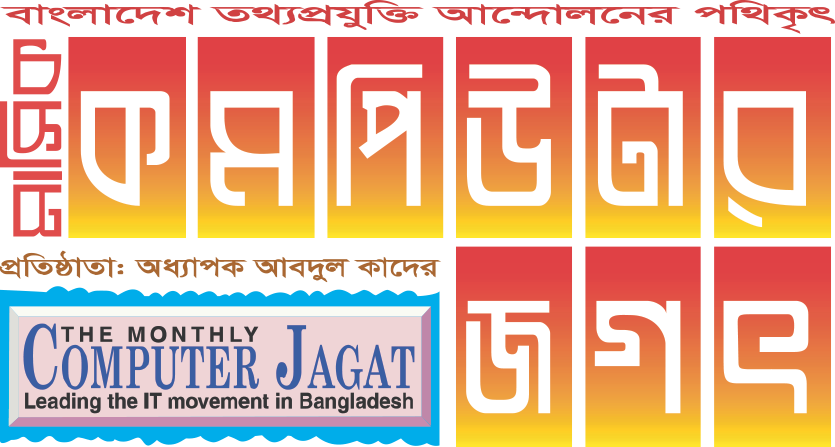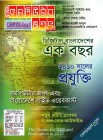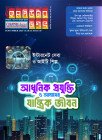হোম > ২০০৯ সালের স্বপ্ন এবং ২০১০ সালের বাস্তবায়ন
লেখক পরিচিতি
লেখকের নাম:
আহমেদ হাফিজ খান
মোট লেখা:১৫
লেখা সম্পর্কিত
পাবলিশ:
২০১০ - জানুয়ারী
তথ্যসূত্র:
কমপিউটার জগৎ
লেখার ধরণ:
ফিচার
তথ্যসূত্র:
ইংরেজি সেকশন
ভাষা:
বাংলা
স্বত্ত্ব:
কমপিউটার জগৎ
২০০৯ সালের স্বপ্ন এবং ২০১০ সালের বাস্তবায়ন
The world is in the midst of a general-purpose technological revolution. Although this revolution has taken in many names, there is little doubt that it is a technological revolution, or a new techno-economic paradigm, brought about by a set of new information and communication technologies (ICT). The ongoing ICT revolution, combined with the forces of globalization, has provoked the hopes and fears of countries at all levels of development, to leapfrog to the new economy, or be left out of the loop. As a result, in response Bangladesh has adopted National ICT policy 2009 with 306 action items, where ICT is treated mainly as a sector for national development. Government and NGOs have responded by piloting a variety of ICT applications for specific sectors or target groups, by including ICT components in development projects, by dealing with telecommunications infrastructure as a free-standing sector, and most recently, by carrying out assessments of Use of ICT in the Government by Support to ICT Task Force.
However, the current status quo whereby mainstream development practitioners continue to ignore the potential roles of ICT poses serious risks to development effectiveness. ICT’s pervasive impact on competitiveness and all aspects of life in advanced economies and its potential impact on social and economic development cannot be denied. Therefore, the strategic significance of ICT for enabling national development and poverty reduction strategies must be understood and operationalized to gain a competitive edge. In fact, economic history, the cumulative learning and transformation process involved in using ICT, and the pace of this wave of technological change suggest that a “wait and see attitude” would keep Bangladesh out of a technological revolution no less profound than the last industrial revolution.
Bangladesh entered into the year 2009 with enthusiasm and euphoria of newly achieved democracy and a dream of building Digital Bangladesh. The dawn of year 2009 promised great heights for the Information and Communication Technology. Today at the end of 2009 I see the light of our enthusiasms and euphoria in the ICT sector dimming. Our belief on the Ministry of Science & ICT to deliver the promise is waning.
The government has announced budget in the July 2009 and has provided a special budgetary allocation of Taka thousand million in this fiscal budget for undertaking programs for ICT related projects but Ministry of Science and ICT has failed to get any of its program approved till date. The government has finally approved ICT act and has appointed the Controller Certifying Authority (CCA) and its office has been established. The activity of the CCA has been limited to seminars of talking and eating.
The Ministry was found very active in their contra-Digital Bangladesh activity through the activity to abolish Bangladesh Computer Council an autonomous body under the ministry. Though the round table organized by the Computer Jagat on this issue saw severe criticism on the move the ministry is undeterred in their resolve. The current government computer professional rule has been widely violated and most government offices including Prime Minister’s Office have seen its third class employee computer operators promoted to the rank of senior ICT professional. These ICT professionals’ lacks in academic preparation to hold such posts and capability to innovate. The government should immediately focus on changing the ICT professional recruiting rules to mainstream ICT graduates and strengthening the Bangladesh Computer Council by providing appropriate personnel.
The vision Digital Bangladesh is not just transforming the country towards use of digital media and equipments in service delivery and governance. The aim is to make the country more transparent and move ahead in the transparency ranking through reduction of corruption. Overcoming the barrier for realizing Digital Bangladesh lies in the consolidating the ICT capabilities of the country by mainstreaming the ICT graduates in the development activities. In recent decades, as economic activity has grown more knowledge intensive, greater attention is being given towards the economic role of innovation. Because the ability to innovate will play a more prominent role in driving future economic growth and realization of the Vision 2021: Digital Bangladesh, the government recruitment policy for ICT professionals must be updated to accelerate policy efforts aimed at strengthening the national innovation systems.
CJ WEB
লেখাটি পিডিএফ ফর্মেটে ডাউনলোড করুন
লেখাটির সহায়ক ভিডিও
পাঠকের মন্তব্য
২০১০ - জানুয়ারী সংখ্যার হাইলাইটস



